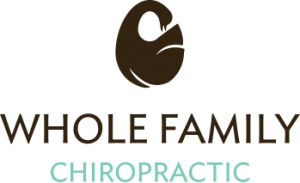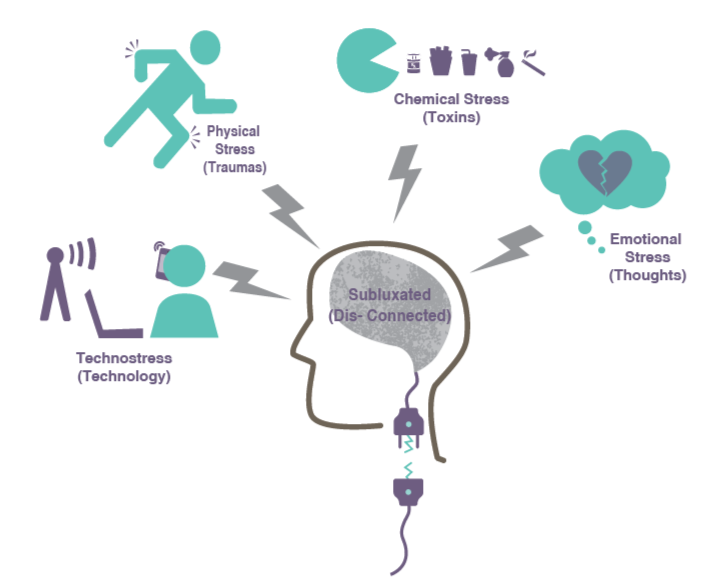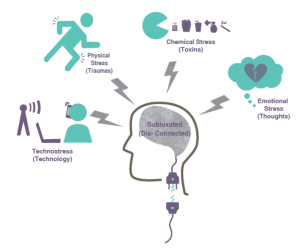Power Up Your Brain #5 of 6
These four things are NOT all in your head:
Guess what? The things that make you feel nervous are NOT all in your head! In this tip you’ll discover tips to destress your brain so it can learn better.
Your brain and nervous system have two modes. One is a stress mode, where it goes into “fight/flight” and tells your body to react with stress (the fancy term for this is the sympathetic mode).
The other is a calm mode that helps you feel at ease, get a good night’s sleep, and digest your food (the fancy term for this is the parasympathetic mode).
While both are necessary to get through your day, which do you think is better for your brain to learn new things? It is the calm mode!
Think about the last time you were really stressed out. You may have been rushing out of the house and forgot something simple like your keys. Your spouse or child tells you to remember something and it goes in one ear and out the other. It is because when your brain is in stress mode, it is about getting through the stress, not learning something new. If your child suffers with anxiety, he or she isn’t going to be able to pay attention and learn new skills.
The bottom line – you can’t learn when you’re under stress!
Here’s the key – stress doesn’t just come from your mind. There are actually 4 categories of “stresses” that will impact your health, your body, and your brain.
Here are the four categories:
- Physical stress
- Being cooped up behind a desk all day makes your brain tired and cranky. That is because movement is sooo important for your brain! If you are hunched over, your body is under physical stress that puts your brain under stress too (click here for our previous blog and activities to help with this).
- We know that kids do way better in school when they have time for recess and gym. The same is true as an adult. Getting movement throughout the day will greatly magnify your brain’s focus and productivity. Big movements recharge your brain best. Think walking, running, body weight activities, playing on the jungle gym, cross-fit, yoga. Small movements (like knitting) are good for emotional processing more than recharging and stimulating your cognitive brain.
- Chemical stress
- Depending on the person, certain foods and food additives can be very stressful for the brain. Common culprits include food dyes, preservatives, and sweeteners (even artificial). Also, keep on the look out for anything your body is allergic or sensitive too. Those sensitivities will definitely decrease your brain’s performance.
- Mental and emotional stress
- This is what most people think of when they think about stress. If we have a worry or concern on our mind, it is tough to focus and learn.
- The top things to help with mental and emotional stress include:
- Fine motor activities – e.g. journaling in cursive to challenge your fine motor skills and help your brain process emotional challenges even more. (Click here to see a list from our previous blog for more ideas)
- Meditation – it can be sitting still, or something active like Tai Chi, QiGong, or yoga.
- Getting adjusted by your neurological chiropractor. This style of chiropractic does wonders to help stress move through your body, rather than getting stuck in your body.
- The top things to help with mental and emotional stress include:
- This is what most people think of when they think about stress. If we have a worry or concern on our mind, it is tough to focus and learn.
- Technology
- This is a stress that is way more impactful that it was years ago. Of course technology has many tremendous benefits, however, the problem is that the wavelengths most modern technology (your cell phone, computer, tablet, wi-fi, Bluetooth, etc) communicate in are very similar to the wavelengths your brain uses to communicate and send messages to your body. As a result, if you are around a lot of technology, your brain has to work harder to run your body. Plus, technology affects sleep at night – which we mentioned in a previous blog is key for your brain to form memories of the day.
- So what can you do? Most of us have heard that electronics before bed will affect your sleep. This is definitely true, as screen time can stimulate the stress side of your nervous system and make it harder for you to calm down and relax.
- The other big ways to help with technology are to manage how many of these wavelengths are affecting your brain while you’re sleeping. Things that can help a lot include: unplugging your wireless router at night so the wi-fi isn’t beaming into your brain, turning all phones and tablets to airplane mode (if you don’t want to turn them all the way off)…or at least putting them at the other end of your house, away from your bedroom.
In summary, here are the 4 types of stress that will negatively impact your brain and a simple tip to help deal with them:
1) Physical stress – take movement breaks many times during the day
2) Chemical stress – eat foods that are as pure as possible, with few added chemicals, flavorings, preservatives, or colors.
3) Mental and emotional stress – do things that challenge your fine motor skills, meditate, and get adjusted.
4) Technology – turn off your wireless router, your phones, tablets, and computers while you sleep at night
Make sure you check out all of our Power Up Your Brain Topics:
Top Two Ways to Stimulate Your Brain
Top Foods to Power Up Your Brain!
The Posture to Improve Self-Esteem and Lower Stress




